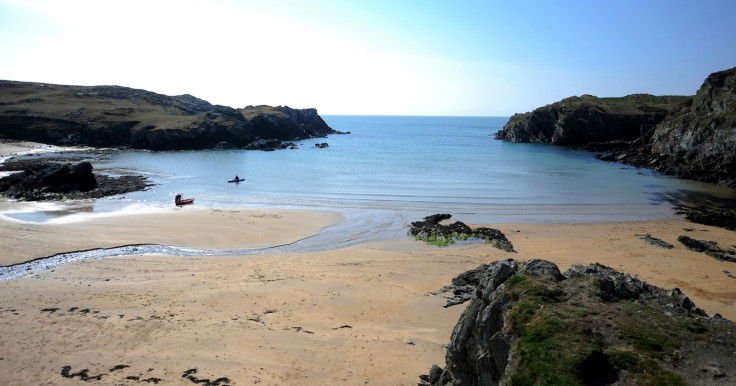Disappointing news for tourists, locals as popular UK beach bans swimming
A "slurry incident" has left countless fish dead in North Wales

Locals and tourists have been urged to avoid a popular beach in the UK after a "slurry incident" left countless fish dead.
The incident took place this week in the sea at Cemaes Bay in Anglesey, North Wales where dead fish have started washing up on the shore. Beachgoers have been asked to avoid bathing in the sea for a few days as Natural Resources Wales are currently investigating the issue, reported Mirror. The workers from the organisation are collecting water samples to discover the source of the problem.
"A number of fish including trout and flounders have died and further fish surveys are being carried out today. Officers have taken water samples and investigations are continuing. Once our investigation is complete, we will decide what further regulatory action needs to be taken," the spokesperson said.
Stay away from Cemaes Bay until Friday
The spokesperson also confirmed that they had identified the cause of the agricultural pollution in the sea in North Wales, but did not reveal the actual problem as yet.
"We have identified the cause of an agricultural pollution incident that took place on July 11 on the Afon Wygyr which has impacted a section of the watercourse and bathing water at Traeth Cemaes, Anglesey. Officers have taken water samples and investigations are continuing," added the spokesperson.
The first warning against the beach at Cemaes Bay was first given out on Monday. This means, people must avoid getting in the water until at least Friday.
"Natural Resources Wales is today responding to an incident at Afon Wygyr, Cemaes Bay, Anglesey. NRW staff are onsite investigating what we believe to be a slurry incident which could affect bathing water quality in the short term and has resulted in a number of dead fish," a spokesperson for the Isle of Anglesey Council said.
Slurry is a mixture of water and manure which can be a great source of nitrogen, phosphorus and potassium and is used to grow crops. It also poses risks to human health and wildlife when it enters rivers and waterways.
Cemaes Bay is situated on the north coast of Anglesey in Wales. The pristine area has two little beaches and is known as a perfect place to relax and unwind, where you can laze on the beautiful beaches, walk the stunning coastal paths, fish, kayak, go bird-watching or just watch the waves.
This latest pollution incident would be a blow to holidaymakers who have made a trip to Cemaes Bay, which is the northernmost town in Wales.
Bird Flu in Scotland
Earlier, in another part of the UK, a similar pollution warning has been in place but for dead birds instead of dead fish. It has been reported that beachgoers have been warned against bird flu after a fresh wave struck at Stonehaven Beach and Cruden Bay in Aberdeen, Scotland, killing over 300 birds.
In recent months, there have been several cases of mass bird deaths across the north-east of Scotland, but the deaths in Aberdeenshire are among the worst and most shocking, Aberdeen Live reported. The Scottish Society for Prevention of Cruelty to Animals have also been forced to humanely destroy a number of live birds suspected of having the contagious bird flu.
Stonehaven Beach is 1km in length and has a sandy stretch towards the south, making it ideal for sunbathers. The beach is a famous spot in Scotland, especially among watersports enthusiasts. Tourists and locals have been asked to stay away from the dead birds, as coming into direct contact with them can raise the risk of possible infections.
Even though the risk of catching avian flu was "extremely low", as per the Aberdeenshire council, it has been advised to tourists and locals to leave the birds in-situ due to other diseases such as salmonella that wild birds can carry. Some varieties of bird flu can pass to humans but this is very rare. It typically requires very close contact between humans and infected birds.
© Copyright IBTimes 2025. All rights reserved.






















